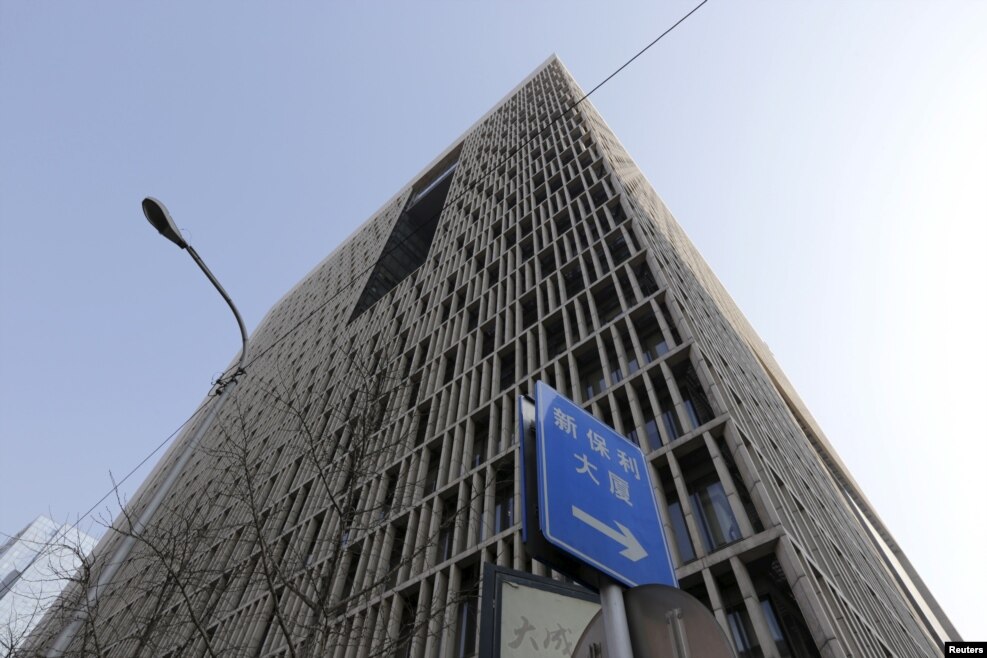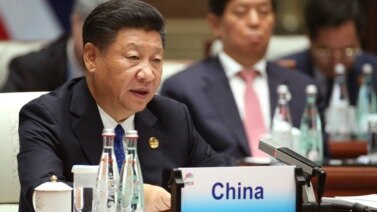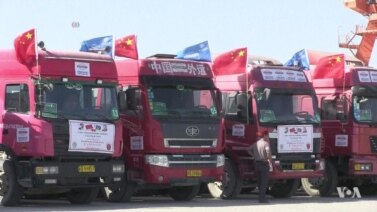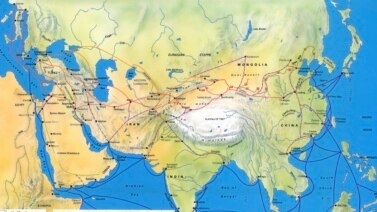
Over the past few weeks, Pakistan, Nepal and Myanmar have cancelled three major projects planned by Chinese companies.
The three projects, worth nearly $20 billion, all involved or were related to hydroelectricity -- the production of electricity by water power.
The cancellations come as a blow to China’s trade-linking project, the “One Belt, One Road” initiative.
Pakistan noted difficult financing terms by China as its reason for canceling the $14 billion Diamer-Bhasha Dam project.
Nepal’s deputy prime minister blamed financial issues with a Chinese company for his country’s decision to cancel a $2.5 billion contract for a hydroelectricity project.
And Myanmar announced last month that it is no longer interested in big hydroelectric power projects. The announcement came three years after Myanmar stopped a $3.6 billion Chinese-supported dam project.
The decisions by China’s neighbors could mean a serious loss of prestige for the One Belt, One Road initiative. The effort involves plans to build power stations, roads and other infrastructure around the world.
A number of local political and economic reasons were partly responsible for the cancellations. But observers say there is a growing recognition among poorer countries that large infrastructure projects come at a very high price.
Asked about the decisions by Pakistan and Nepal, the Chinese foreign ministry said it knew nothing about them.
“I am not aware of this information,” a foreign ministry spokesman told reporters. He added that China and Nepal have a strong relationship and cooperate in many areas.
Muzammil Hussain is chairman of Pakistan’s Water and Power Development Authority. He reportedly told a parliamentary committee that the Chinese company planning the project had demanded difficult financing rules. Those rules were said to include requiring the new dam and a dam that was already built be used as security for a loan. Hussain added the Chinese demands were against Pakistan’s interests.
Himanshu Thakkar works at the South Asia Network on Dams, Rivers & People, an Indian-based non-government organization. He noted that Pakistan’s biggest ally is China and the Pakistanis would not do this project without the Chinese.
Indeed, the two countries describe their relationship as “iron brothers.”
The Pakistanis “really want financing for this project,” noted Zorawar Daulet Singh of the Center for Policy Research in New Delhi. Singh said he does not take Pakistan official’s statement at face value. The Pakistani government had asked the World Bank and Asian Development Bank for money to finance the project, but was refused, he said.
He explained the Chinese do not want to do the project because of protests from India. The project was to have been built in Kashmir, an area claimed by both India and Pakistan. China does not want to get involved in the dispute.
Singh said that China wants to forget about this project until the government can get both sides to come to an agreement.
By making the price high, China has tried to give Pakistan a reason to end the project and save it from embarrassment, he explained.
The Budhi Gandaki hydropower project in Nepal would have involved a Chinese company, the Gejuwa Group. Deputy Prime Minister Kamal Thapa said the agreement with the company was filled with problems and cancelled in a cabinet meeting. Thapa also said the agreement had been signed “illegally and haphazardly.”
The cancellation came just before an election.
Yubaraj Ghimire is an expert on Nepali politics. He says Nepal’s coalition government asked the Chinese company to build the dam project. The coalition had representatives of the Maoist Party and the Nepali Congress.
“There were questions raised about the transparency. You know,” he said, “it was quite a controversial deal. That was six months ago.” Then, a parliamentary committee proposed that the deal be cancelled, but nothing happened, he added.
One of Nepal’s political leaders and a possible prime minister has even said he would cancel the decision if he comes to power.
Some observers say there is also some rethinking in China about possibly canceling projects that offer a poor return on investments.
China has come a long way with its initiative since it tried to sell projects to neighbors like Myanmar, Nepal and Pakistan. It is now looking at a large part of Europe and the Americas as possible markets.
China is also interested in exporting its hydroelectricity related machines and construction services. But it is taking a different position in the case of projects in neighboring countries which have political problems. It is looking instead at markets like Latin America and Africa.
By the way, the same company, Gezhouba Water and Power (Group) Co Ltd. won the contracts, which were later rejected by Pakistan, Nepal and Myanmar.
“I am not sure we can blame the company for this.” Thakkar said. “They are more (due to) investment and political considerations.”
The recent cancellations also show a growing understanding among governments that the cost of electricity produced in hydropower projects is a lot more than those coming from solar and wind power, Thakkar said.
In the case of Myanmar, the country’s Construction Minister told Reuters last month that big hydropower projects are no longer an important way to solve power shortages. The official said Myanmar is looking to smaller dams as a possible answer.
I’m Susan Shand.
And I’m Jonathan Evans.
Anjana Pasricha reported this story for VOA News. Susan Shand adapted her report for Learning English. George Grow was the editor.
Write to us in the Comments Section or on our Facebook page.
Words in This Story
initiative - n. a program that is supposed to solve a problem.
prestige - n. the respect and admiration that someone or something gets for being successful or important
infrastructure - n. the basic equipment and structures (such as roads and bridges) that are needed for a country, region, or organization to function properly
face value - n. the apparent value or importance of something
embarrassment - n. something that causes you to look or feel foolish
haphazard - adj. the basic equipment and structures (such as roads and bridges) that are needed for a country, region, or organization to function properly
transparent - adj. able to be seen through, honest and open
controversy - n. strong disagreement about something among a large group of people
construction - n. the process or act of building something



